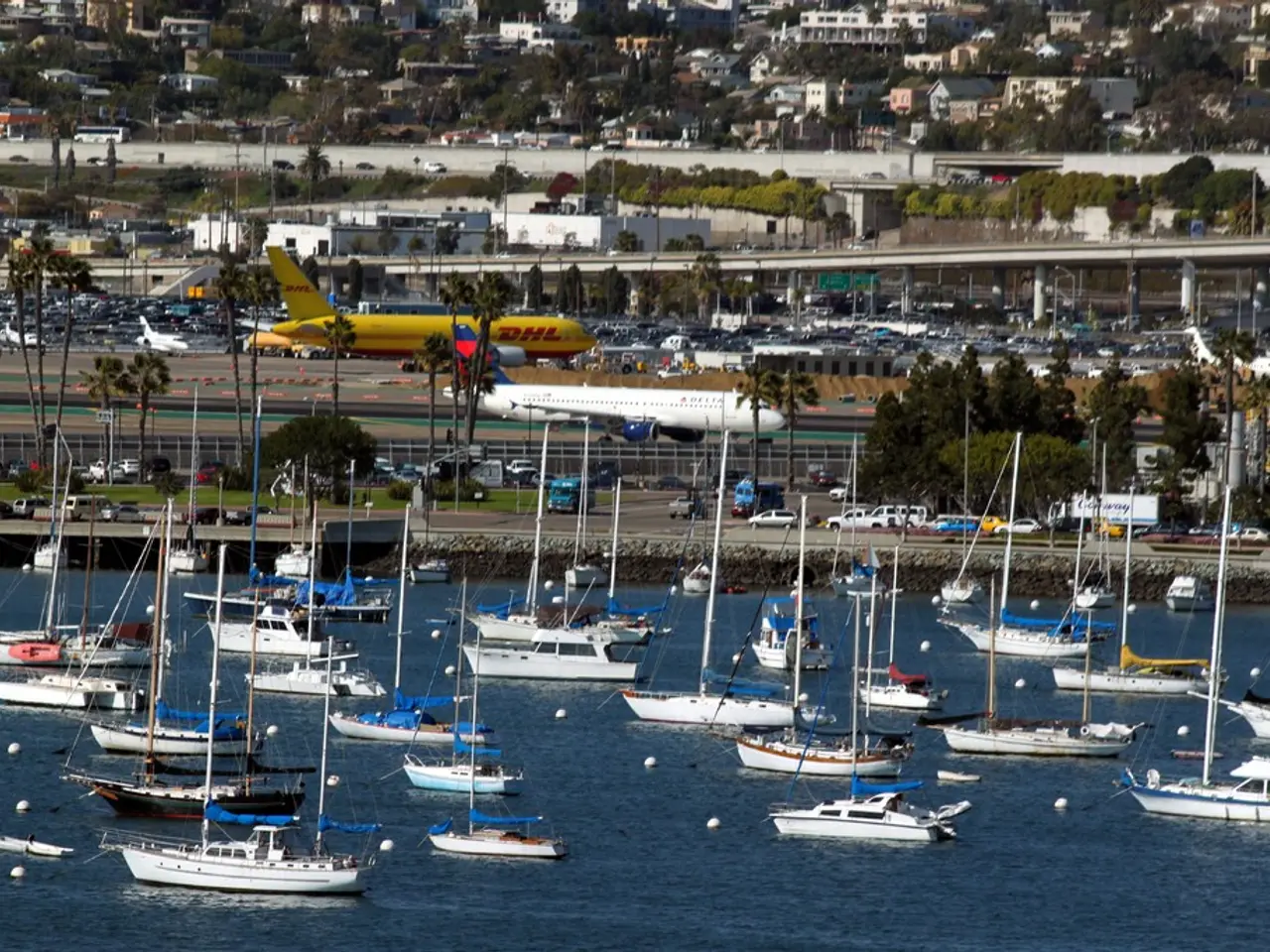Offshore refugee centers' relocation plan for migrants in Europe in disarray following a higher court decision
European Court of Justice Ruling Challenges Offshore Deportation Centers
The European Court of Justice (ECJ) has issued a landmark ruling that significantly impacts the practice of sending asylum seekers rescued at sea to overseas deportation or processing centers. The ruling reinforces the legal obligations of EU member states towards asylum seekers, emphasizing the need for transparency, effective judicial review, and individualized consideration of protection needs.
The ruling, based on two Bangladeshi asylum seekers who were detained in Albania and argued returning to Bangladesh was unsafe, directly challenges policies such as Italy’s use of Albanian offshore centers for asylum processing and its designation of certain countries as "safe" for expedited deportations.
According to the ECJ, a member state cannot invoke an unforeseeable influx of asylum seekers ("force majeure") to avoid guaranteeing adequate standards of living, including housing and financial aid, to asylum seekers within their territory. This ruling implies that states must uphold minimum reception conditions even in crisis situations, limiting their ability to justify offshoring or restrictive practices based on capacity issues alone.
Regarding offshore deportation centers, the ECJ invalidated practices like Italy’s sending asylum seekers rescued at sea to Albanian camps, where asylum applications depend on the classification of their origin country as "safe." The court found that such designations must be based on accessible, objective evidence and allow for effective judicial review. Where these safeguards are absent, such transfers violate EU law.
This ruling places pressure on Italy and other EU member states to ensure that offshore processing and deportation do not undermine fundamental rights and procedural guarantees. In light of the proposed EU asylum regulations, which seek to enhance control and streamline asylum processing, the ECJ decisions serve as a legal check ensuring that the Pact’s implementation respects fundamental rights, judicial safeguards, and minimum reception standards.
The European Commission president Ursula von der Leyen and then European Council president Charles Michel lauded Italy's 2023 landmark agreement, but the ruling's impact on the development of detention hubs remains uncertain. Several European countries have expressed interest in developing their own deportation schemes similar to the Italian-Albanian partnership, but the ECJ rulings signal that such schemes must incorporate robust protection measures and judicial oversight to comply with EU law and the Charter of Fundamental Rights.
Italy's far-right Prime Minister Giorgia Meloni criticized the court’s decision, stating it weakens policies to combat mass illegal immigration and protect national borders. The Italian-Albanian partnership, a multi-million-euro investment in detention centers and "return hubs" in a non-EU country, has cost Italy more than €74.2 million (approximately $86 million).
The EU's list of "safe countries of origin" includes Bangladesh, Columbia, Egypt, India, Kosovo, Morocco, and Tunisia, but human rights campaigners argue these countries are not safe for all their populations. The pact lays out wide-ranging reforms designed to ease the burden on countries that have historically taken the most asylum-seekers among the EU’s 27 member states. In May 2024, the EU established a set of reforms designed to streamline Europe’s approach to managing migration and asylum, and the ECJ rulings will impact new EU asylum regulations set to take effect next June.
- The European Court of Justice (ECJ) ruling has brought into question the validity of offshore processing and deportation centers in Europe, especially in the context of asylum seekers rescued at sea.
- The ECJ decision challenges policies that designate certain countries as "safe" for expedited deportations, such as Italy’s use of Albanian offshore centers for asylum processing.
- According to the ECJ, member states cannot avoid guaranteeing adequate standards of living to asylum seekers within their territory, even in crisis situations, and must uphold minimum reception conditions.
- The ECJ invalidated Italy’s practice of sending asylum seekers rescued at sea to Albanian camps, emphasizing that such designations of "safe" countries must be based on accessible, objective evidence and allow for effective judicial review.







